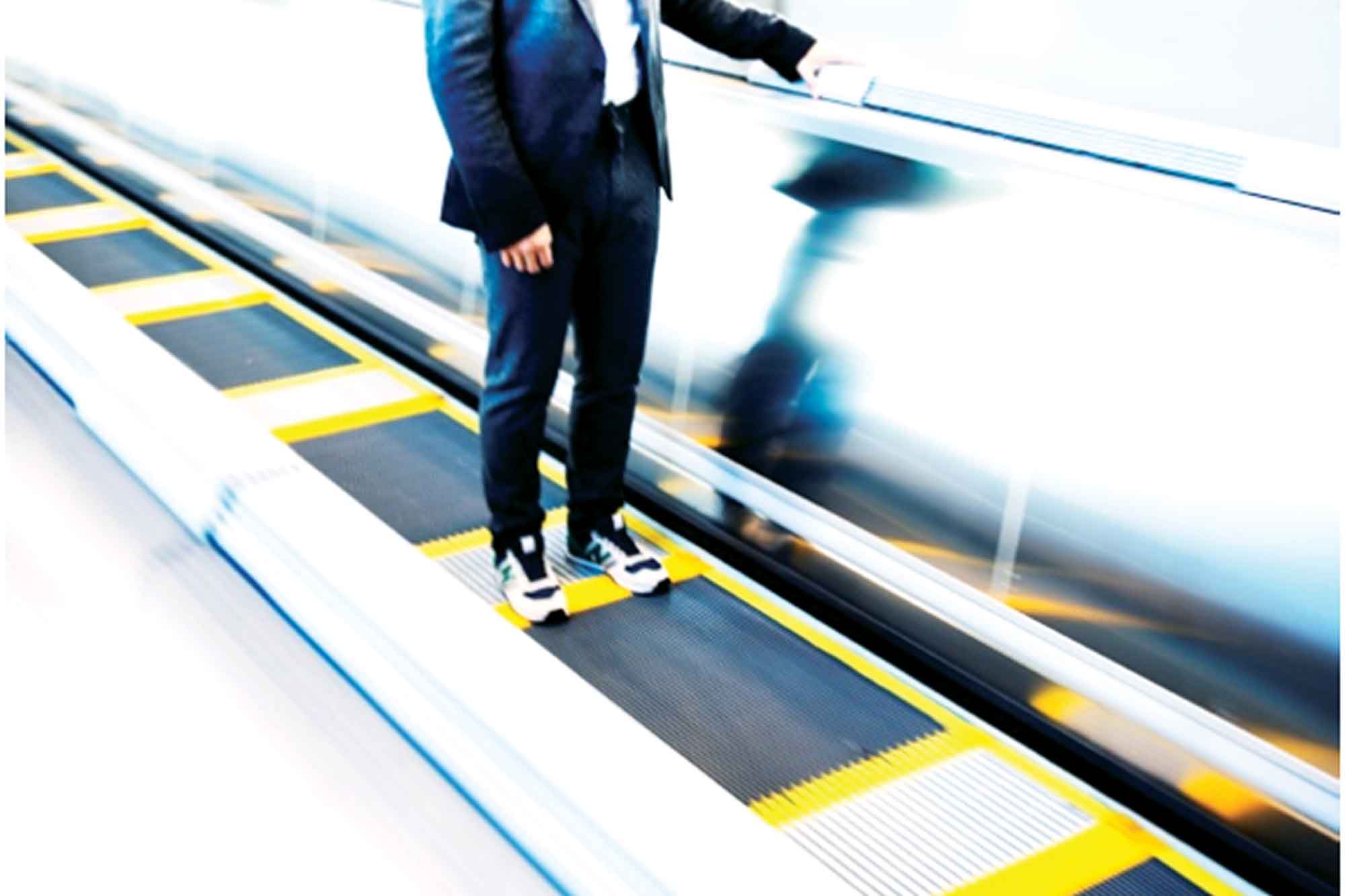ThyssenKrupp accelerates transit times with its new ACCEL system
By Edit Team | November 21, 2014 6:17 am SHARE

ThyssenKrupp launches ACCEL, an innovative transportation system set to accelerate transit times in cities and airports
ThyssenKrupp has presented its recent technological development, marking its entrance into the mass transit sector. ACCEL is a transportation system offering high capacities and high speeds for short distances, with no waiting times for passengers and low implementation costs.
It has made possible for passengers to enter walking at a regular speed and get accelerated at high-speeds to the other end. Applying linear motor technology from the Transrapid magnetic train, the ACCEL transportation system will facilitate fast access to metro stations, making it possible to have a station entrance at less than 600 metres from any commuter, attracting up to 30 per cent additional passengers. In airport terminals, ACCEL can cut current transit times between gates by a remarkable two-thirds.
As congestion in urban transport networks rises in tandem with the population increase in cities, city governments are under continual pressure to reduce road traffic congestion and combat the costs it imposes in terms of immense wastage of time, energy, and environmental resources. ThyssenKrupp ACCEL has been developed to address this need in the current multimodal transportation network of large cities.
The ACCEL transportation system facilitates the building of passenger feeders to existing metro stations, making them easily accessible even to commuters who do not usually use the metro due to its distance from their locations. Implementing ACCEL works as an alternative to building expensive additional stations or carving complex underground connections, and results in a significant decrease in the number of road transport vehicles in use.
Commenting on ACCEL’s many advantages, Andreas Schierenbeck, CEO, ThyssenKrupp Elevator AG, said, “ACCEL is our contribution in aiding the urban shift from road to rail – the ultimate goal for transportation authorities in large cities today.”
ACCEL also benefits airport operators looking to improve transit times between gates or between distant parking bays and the airport. With no waiting times or barrier gates, passengers need only 140 seconds to cover a distance of 270 metres, instead of the earlier 415 seconds. For airport operators, it eliminates the need and high costs associated with providing buses, automated people movers, or sky-trains for distances of up to 1.5 km.
ACCEL can transport as many passengers as typical fully automated cabin systems, move up to 7,300 passengers per hour per direction. Using a band of overlapping pallets that expand to three times the original size of each pallet, ACCEL’s technology, applying the linear motor technology of the magnetic train Transrapid, ensures that passengers step onto the belt at normal walking speeds of 0.65 m/s accelerate smoothly up to 2 m/s and then decelerate back to normal walking speeds before leaving the system. For passengers who continue walking while on the belt, speeds of up to 3.3 m/s can also be achieved.
In addition to being easy to use, ACCEL does not require large teams to operate and maintain, is a perfect solution to fill the current gap in short distance transportation in cities and airports, and is a very competitive alternative to existing automated people movers for distances of up to 1.5 km.
With this product, ThyssenKrupp’s engineers have helped increase safety and ease of maintenance while concurrently saving on operating costs. ACCEL was developed by the ThyssenKrupp Elevator R&D Centre with the support of the ThyssenKrupp Transrapid project and key suppliers such as Prodrive, Tecnotion, and Beckhoff.
Cookie Consent
We use cookies to personalize your experience. By continuing to visit this website you agree to our Terms & Conditions, Privacy Policy and Cookie Policy.




















